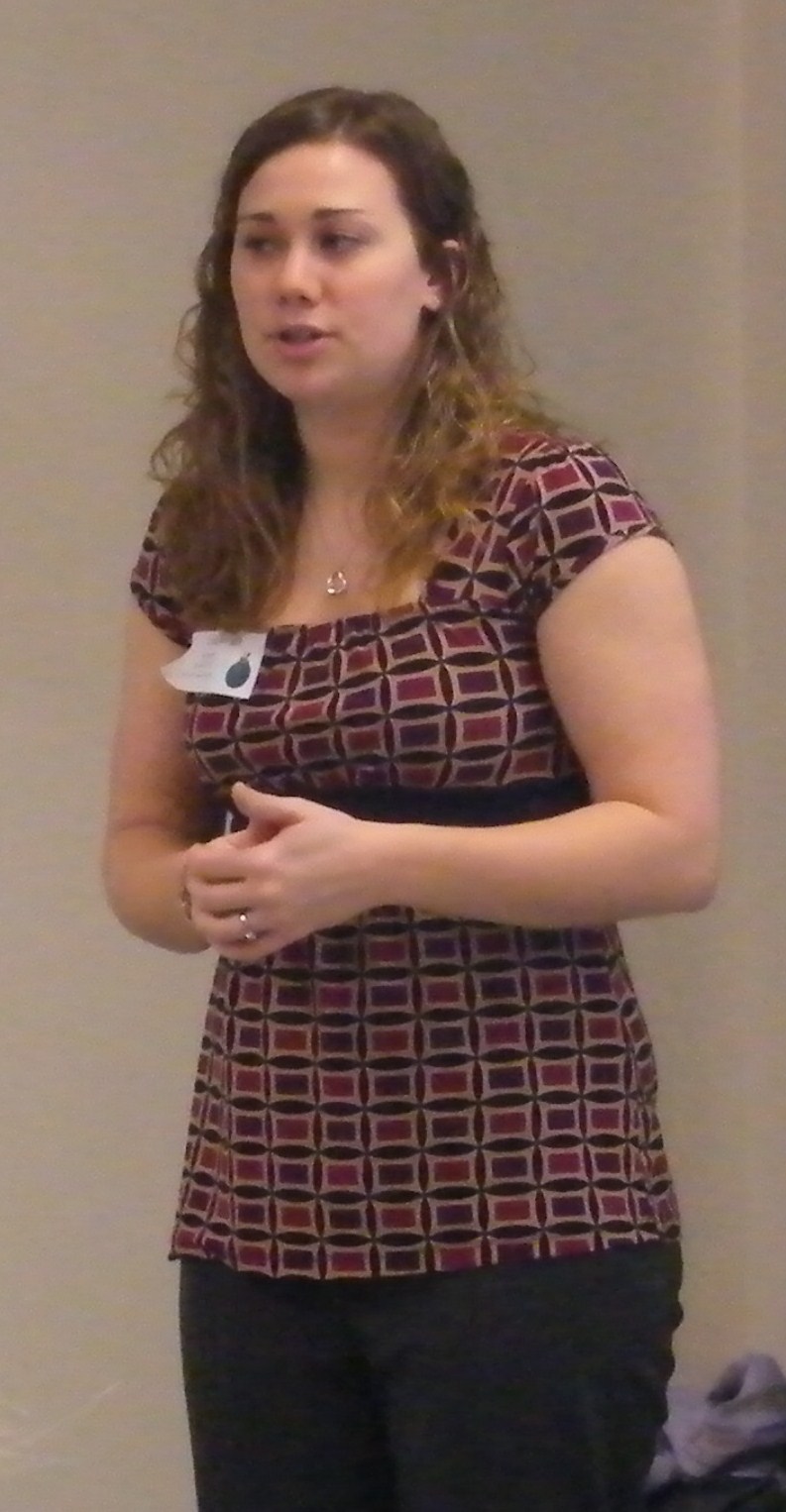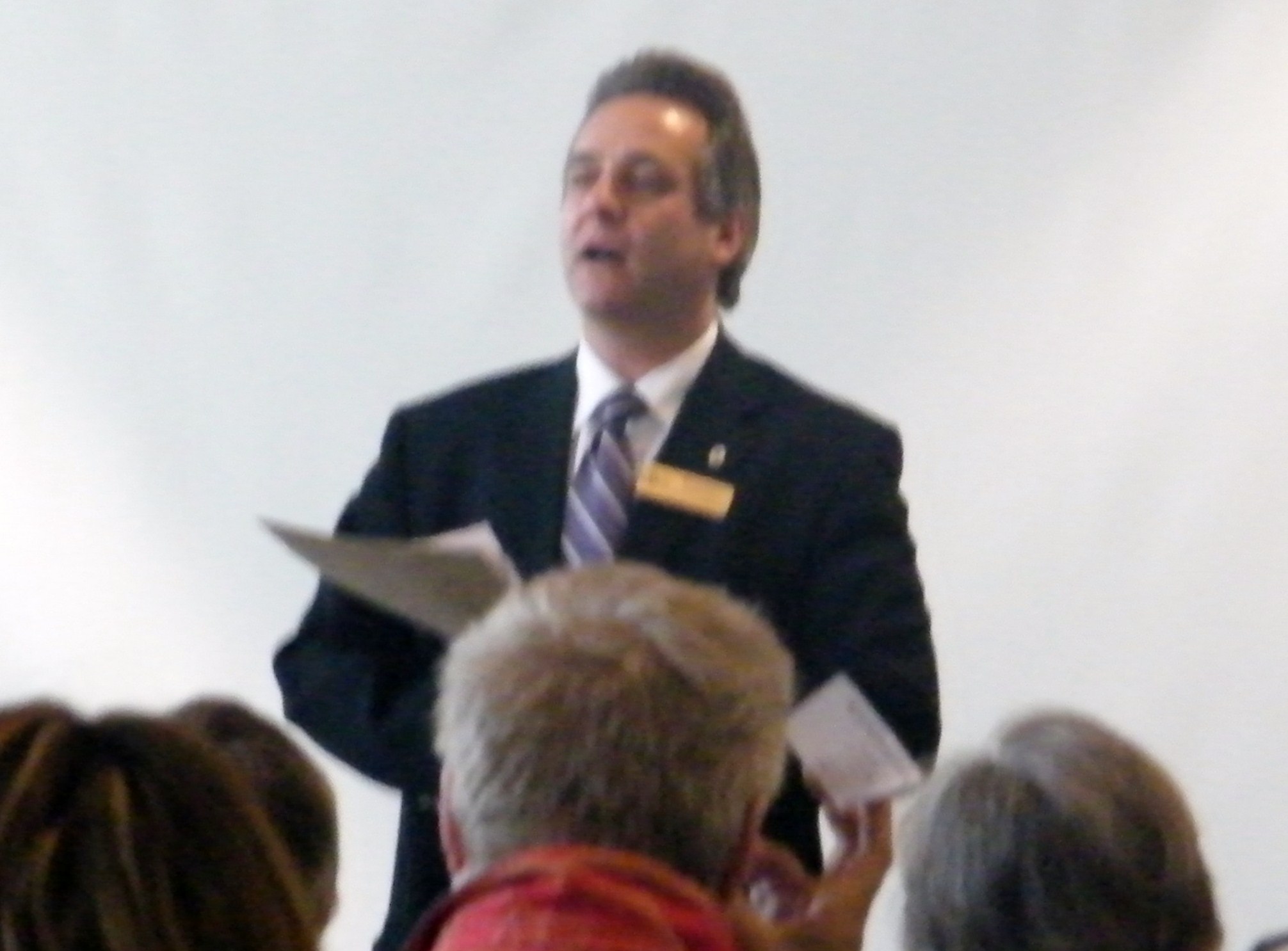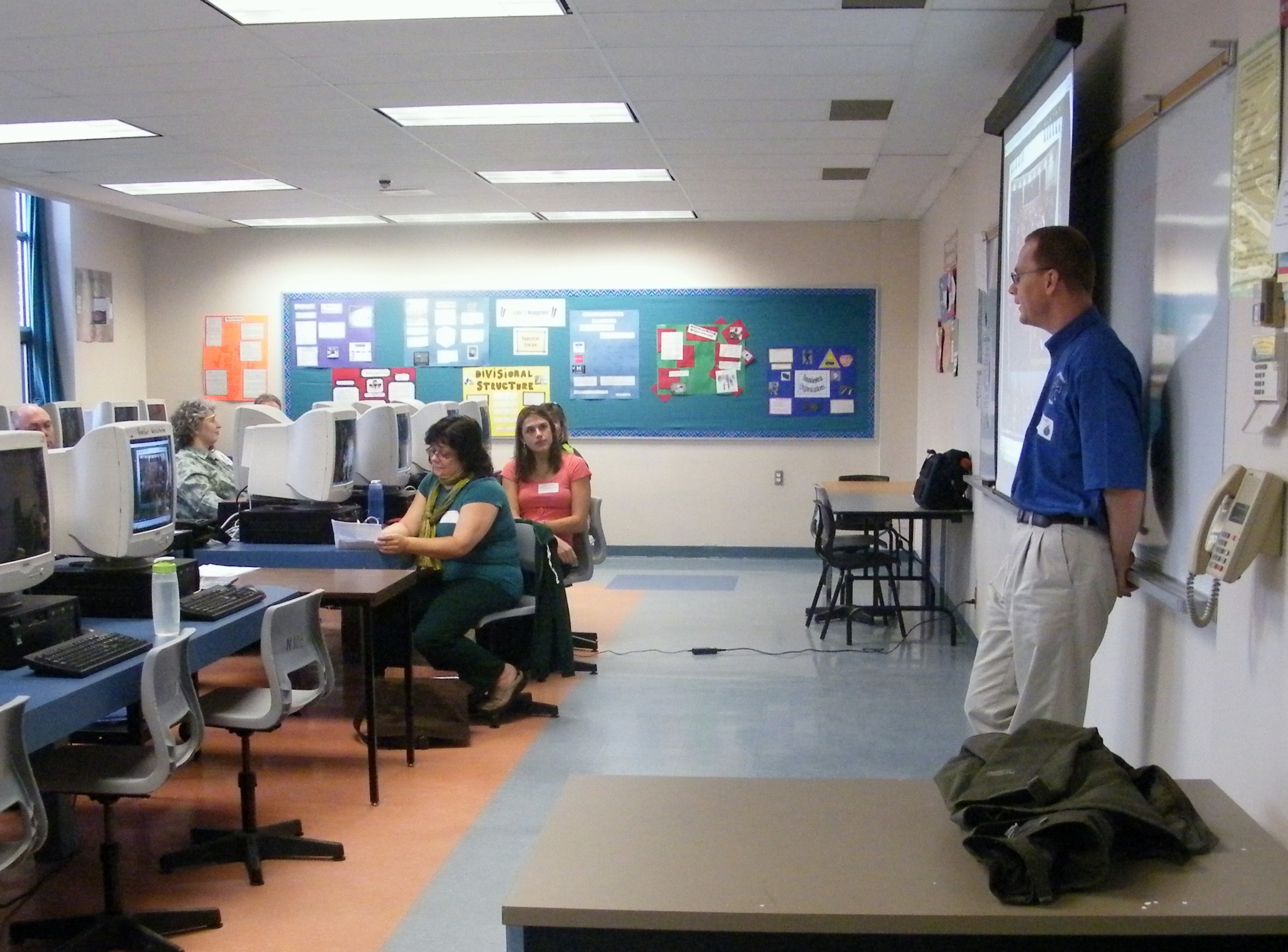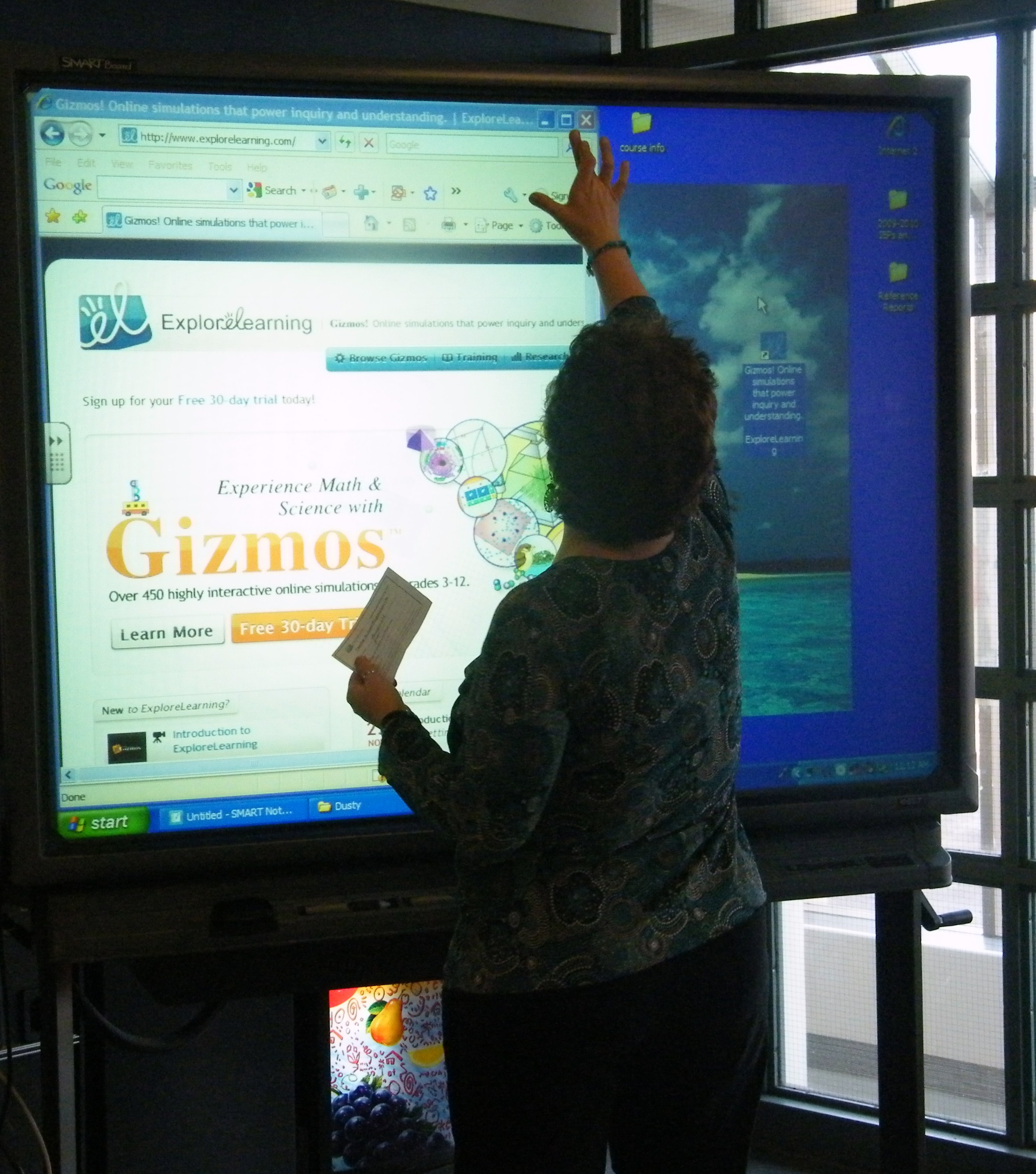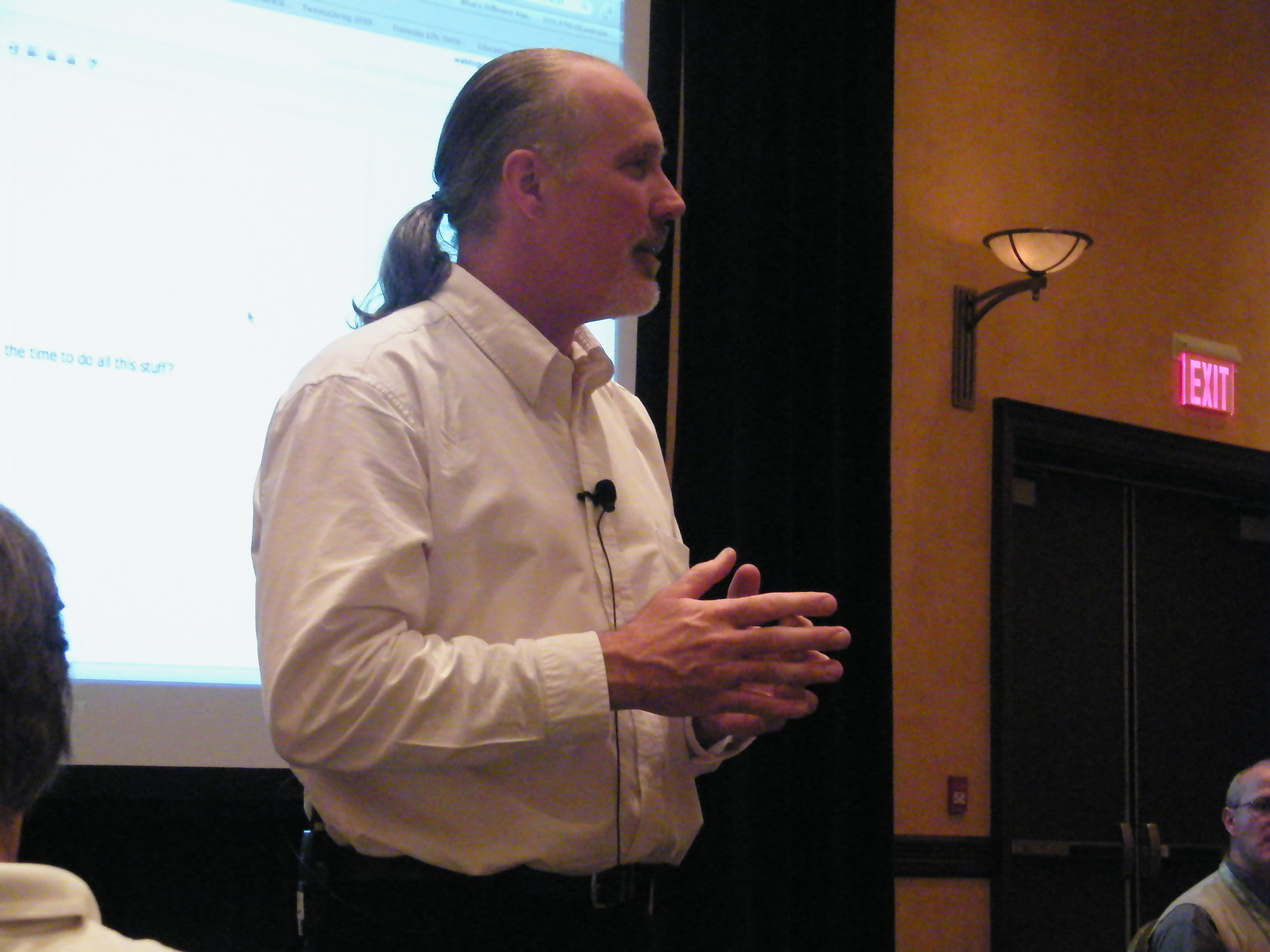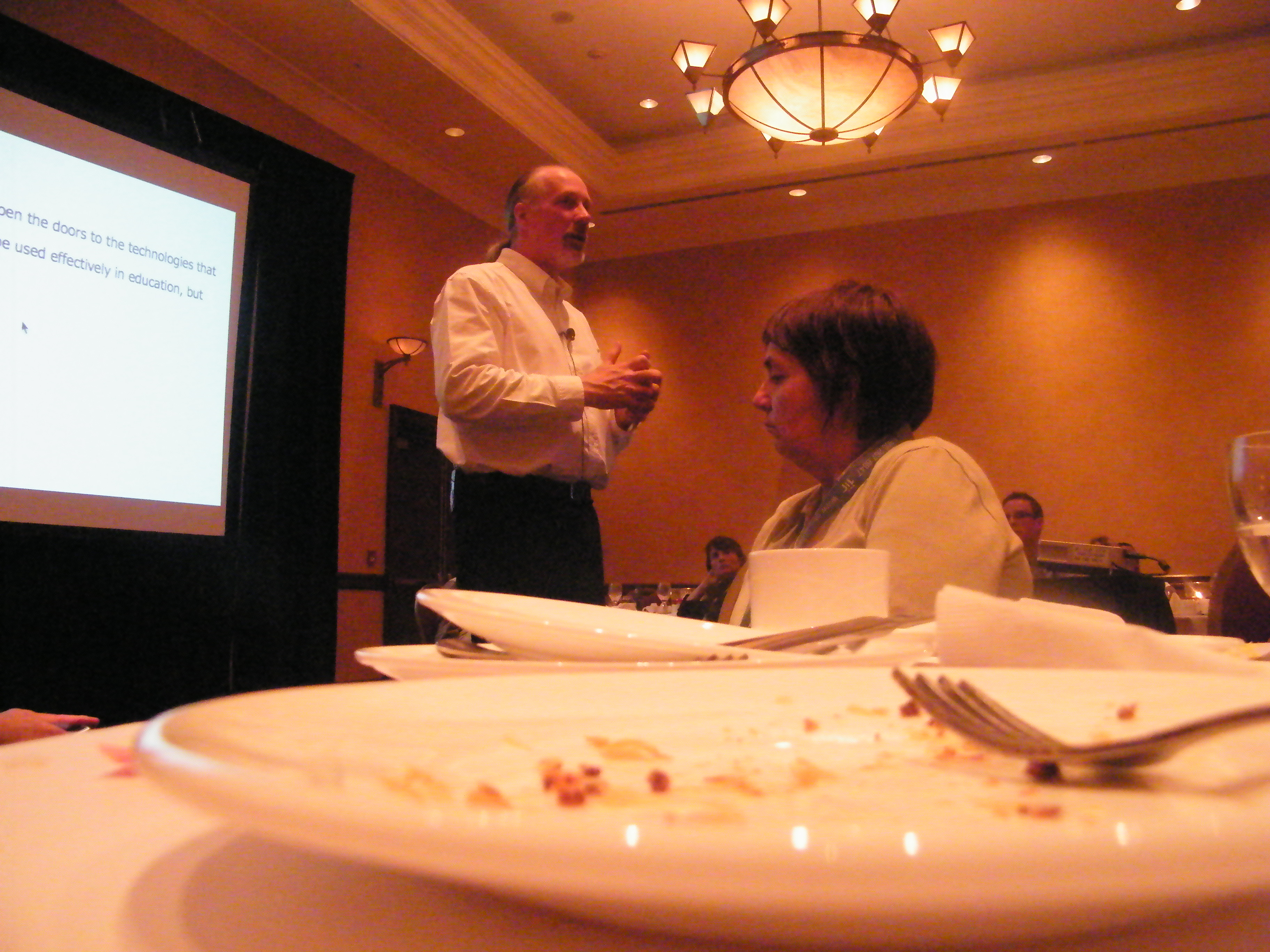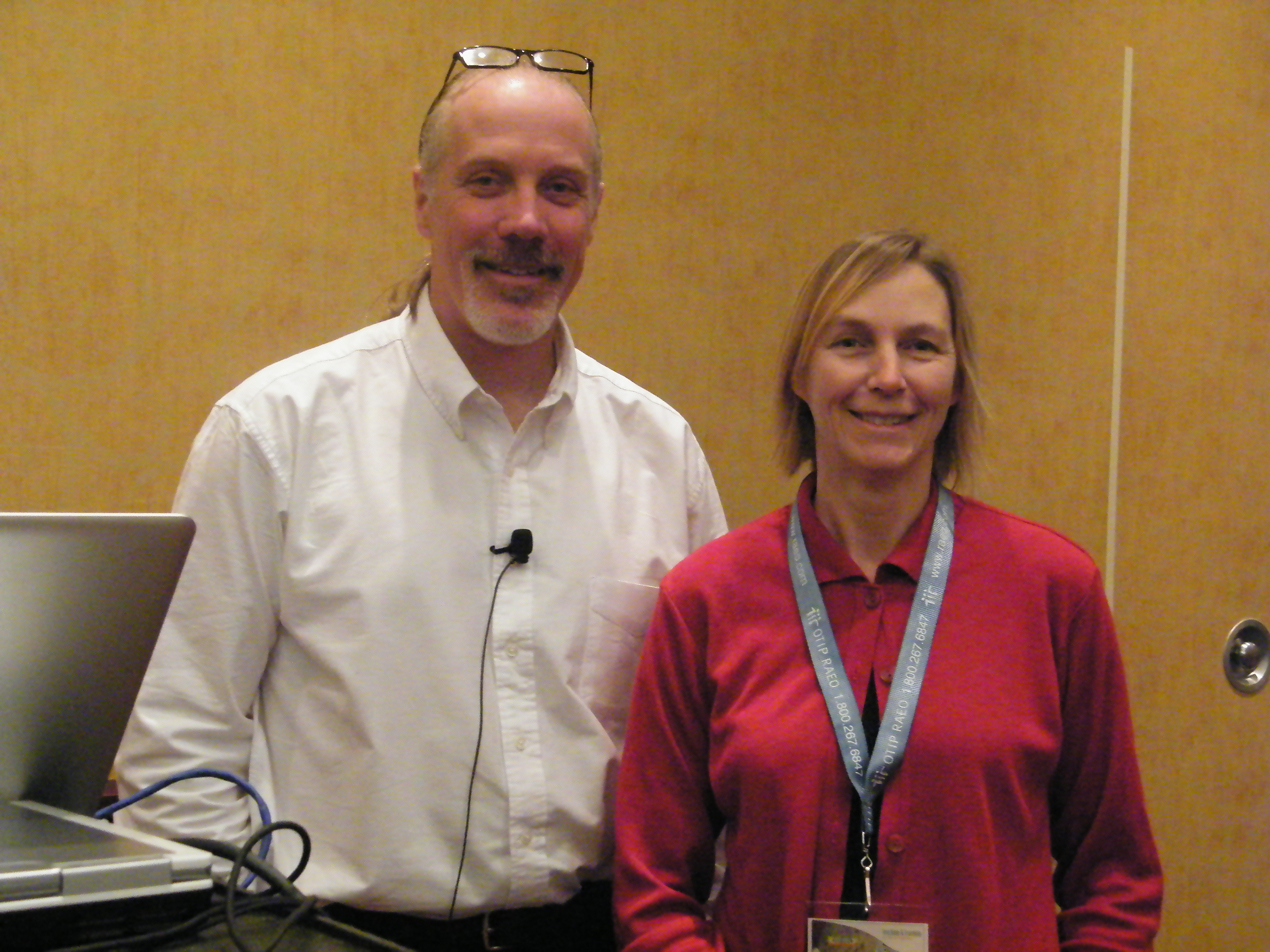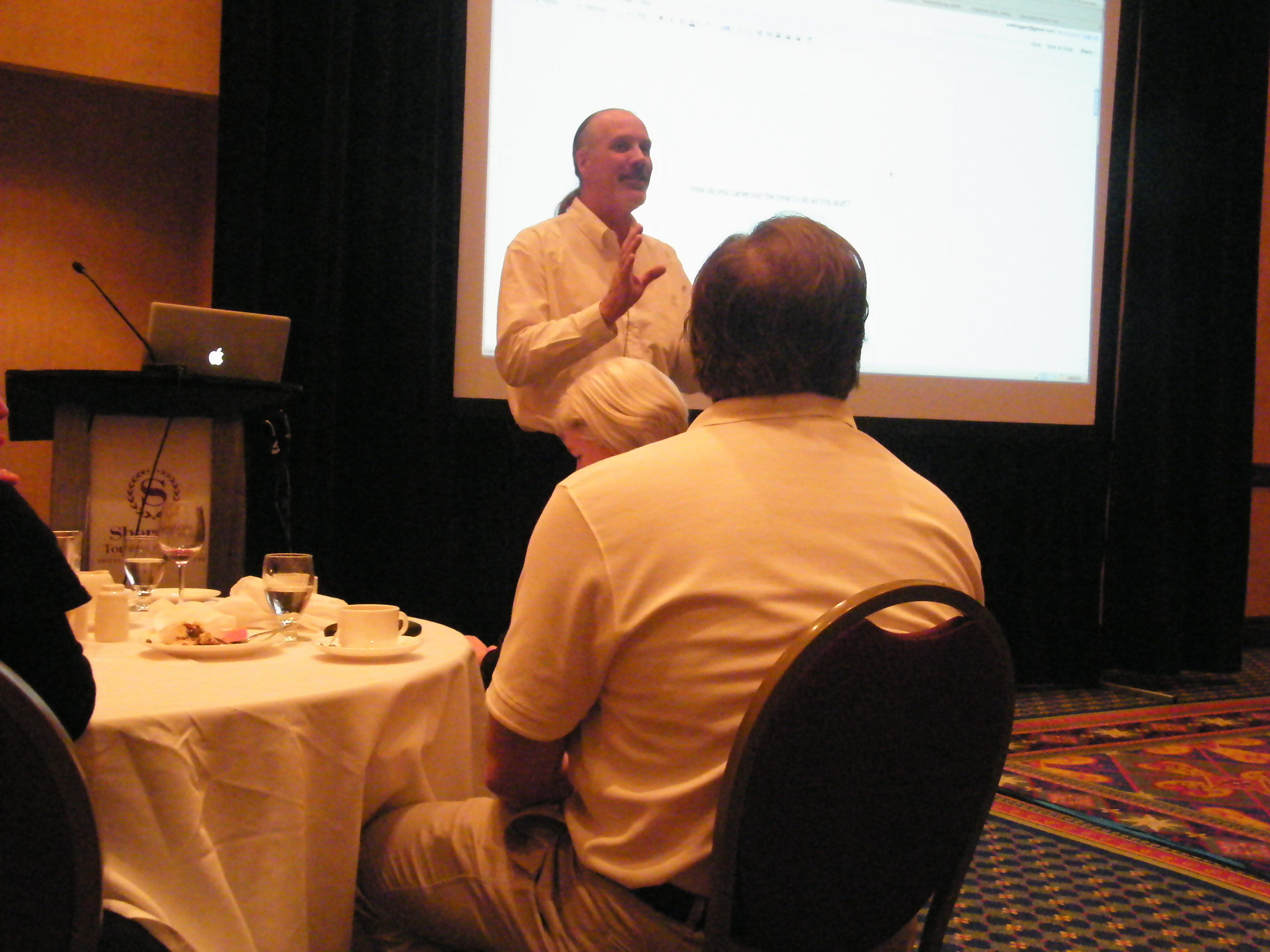Hélène Wyskup e-Portfolio
Affiliations
March 17th 8PM -21st Century Skills: Learning for Life in Our Times Webinar
Description: In 21st Century Skills, Bernie Trilling and Charles Fadel tell why and how the global landscape for learning is reshaping itself, and what this global transformation, often called the “21st century skills movement,” may bring to a school near you. 21st Century content includes the basic core subjects of reading, writing, and arithmetic-but also emphasizes global awareness, financial/economic literacy, and health issues. The skills fall into three categories: learning and innovations skills; digital literacy skills; and life and career skills. Based on a framework developed by the Partnership for 21st Century Skills, their book and DVD vividly illustrate the skills needed to survive and thrive in a complex and connected world.
In their global education roles, Bernie and Charles have spoken to thousands of educators and met with hundreds of education leaders on the move to a 21st century approach to learning.
Bernie and Charles share a deep conviction that the most important learning tools are our minds, our hearts and our hands, all working together.
Name: Bernie Trilling
Bernie Trilling is global director for the Oracle Education Foundation, directing the development of education strategies, partnerships, and services for the Foundation’s ThinkQuest program. He represents the Foundation as a board member of the Partnership for 21st Century Skills.
Bernie has worked on a number of pioneering educational products and services, and is an active member of a variety of organizations dedicated to bringing 21st century learning methods to students and teachers across the globe. Prior to joining the Oracle Education Foundation, Bernie was director of the Technology In Education group at WestEd, a U.S. national educational laboratory, where he led a team of educational technologists in integrating technology into both the instructional and administrative realms of education. He has also served in a variety of roles in both education and industry, including executive producer for instruction at Hewlett-Packard Company, where he helped lead a state-of-the-art, global interactive distance learning network.
As an instructional designer and educator, Bernie has held a variety of professional educational roles in settings ranging from preschool to corporate training. He has written dozens of articles for educational journals and magazines, as well as chapters for educational books, and is a featured speaker at numerous educational conferences.
Bernie attended Stanford University where he studied environmental science and education. He also took some time off from Stanford to help organize the very first Earth Day in Washington, D.C.
Bernie has been a lifelong, self-propelled learner, spending much of his career furthering the kinds of learning experiences that he has found most engaging, collaborative, real-world, and powerful, working to make these experiences available to learners of all ages.
Name: Charles Fadel
Charles Fadel is Global Education Research Lead at Cisco Systems, and the Cisco board member at the Partnership for 21st Century Skills (of which Cisco was a founding member) and Innovate/Educate (an organization dedicated to advocacy of Science, Technology, Engineering and Math (STEM)). He is vice-chair of the Education committee of the Business and Industry Advisory Committee to the Organization for Economic Co-operation and Development (OECD) and actively works with three committees of the OECD — CERI, AHELO, and TALIS. He has consulted with a wide variety of education ministries/boards including Massachusetts, France, Chile, Brazil, Costa Rica, Tunisia, and the Dominican Republic, to name a few, and has worked on education projects with more than thirty countries and states. Charles has co-authored a book titled “21st Century Skills — Learning for Life in our Times”, and frequently lectures on this topic, as well as STEM, and Education Technology.
He is presently advising two non-profit organizations, and an innovative school system in Chile (Innova100). He is also incubating a non-profit organization addressing the convergence of 21st Century Skills and STEM to better teach Statistics and Probabilities. He is a visiting scholar at Wharton/UPenn where he recently taught a class on Technologies for Learning. He has recently served on the Massachusetts Governor's Readiness Project as well as its 21st Century Skills task force.
He has contributed many articles or has been interviewed in publications such as Technology & Learning, New Media Consortium, Massachusetts Association for Supervision and Curriculum Development, eSchool News, Education Week, University Business, EETimes, and others. He has presented at numerous education conferences, including the Consortium for School Networking (COSN), the National School Boards Association (NSBA), the National Center for Technology Innovation (NCTI), and the Masie Center's learning conferences.
Charles has been awarded five patents on video, content, and communication technologies. He holds a bachelor of science in electronics with course concentration in quantum and solid-state physics with a minor in neuroscience, and a master of business administration in international marketing. An avid reader, he has autodidactically learned disciplines such evolutionary psychology and comparative linguistics. He also enjoys the lessons of classical history.
Do you ever wonder as to what it will be like in 20 years from now as far as technology is concerned and what skills will one need to succeed. Learning is what most adults will do in the 21st Century. From 1975 tools (radio, cassette, 8 track, LP record, stereo, TV), to today’s media tools, information technology has come a long way in a very short time especially if one looks at all the new i.t. since the year 2000.
For the 21st Century Learners, the net generation demands 1) personalized learning, 2) speedy access to online research, writing, sharing to project tools, 3) social networking and collaborating; 4) playfulness - games, simulations, creative expressions. References are given to 1) learning by groups, 2) learning by doing practical things, 3) learning with friends and 4) learning technology.
There is a real polarization in the income in more developed countries for the Future World of Work (research, development, design, markteting and sales, global supply chain, management).
To conclude, I have attached sites which were mentioned in tonight's Webinar.
Sites to consult:
http://www.wyde.state.wv.us/teach21/
http://www.johnseelybrown.com/
http://www.tomorrow.org/speakup/pdfs/SUNationalFindings2010.pdf
http://21stcenturyskillsbook.com/
https://thepartnershipfor21stcenturyskills238.eduvision.tv/default.aspx
http://www.conference-board.otg/Publications/describe.cfm?it=1218
http://www.librarian.net/talks/sxsw10/
http://www.futureofeducation.com/
http://edtechtalk.com/live
On www.discoveryeducation.com under Middle School, there are many option you can browse, namely, Teacher Center Science Middle School, Hands On, Science Sleuths, Science Simulations, Videos which allow you to pause these to give additional information to the students. There are quite a few of interactive videos . There are also formative assessments. Once a student has completed his/her assessment, he/she will be recommended more materials depending on the student's results. This type of assessment can be used as a pre or post lesson. To save a video you have to click on the check-mark box and then click on my Content. Open your video for viewing. The drop down menu allows you to assign the video to a specific students under my Content for a quiz.
March 2, 2010 - Lance Rougeux - ABC's of using Tech to improve student's writing skill
Creating projects from an existing file name/video/images of a trip can be posted into Google Earth. Once the recorded virtual field trips are embeded with a code, they can be pasted to your placemark. Using Voicethread.com, copy the code and paste it into Google Earth. Once you open Google Earth and have typed in the location area, your will be able to see your video.
February 10, 2010 - Making Learning Magic With Voicethread Webinar
Voicethread.com is a site that let's you create collaborative multimedia projects and so much more. It has become a great i.t. Web 2.0 tool for educators to use with students. A voicethread can hold from conversations to media, pictures, videos etc. It can contain an entire group around the main picture and participants can draw on the picture while your are talking. You may be required to pay a very minimal fee if you register your class.
You can put your voicethread on DVD also. For any additional information, visit the sites
pipedreams.edublogs.org/2009.com
February 9, 2010 - Science Discovery Education Webinar
Discovery Education offers a wide variety of subjects from video, blackline masters, hands-on prints outs, virtual labs and videos and much more. You need to register to enter this site. It is a free site. Options are wide: you can do a keysearch, download the video or the segment into your own video. There are blackline masters, teachers' Guide, e-books, a dictionary and much more. There are virtual labs with corresponding hands on labs using common materials. Go to the site discoveryeducation.com/teachercenter. In Science Assessment Manager, you can track, edit, assign, report and recommend. You can have a test done on this web site. It is secure. In Professional Development, there are 5 minute preps, best practices and interactive training.
January 9, 2010 - a 7 Hour DENSCIcon2010 Webinar
About DEN SCIcon
No Paper Left Behind; Patti Duncan:Hands-On Digital, Teaching Process Skills with the Mythbusters
You can find nearly 300 presentation resources on spreadsheets.google.com/ccc
For the DEN Science in Action Webinar, go to blog.discoveryeducation.com/scienceinaction
More information as to the sites where you can find the above mentioned videos will follow.
November 21, 2009:
I attended and participated in the SUMMIT7 21st Century Learner Workshop.
Sessions given: Hands-on sessions, Online Applications, Tools and Resources, eLearning, Social networks (Ning), Google Apps, Sites, Communication Tools, Podcasting (using iPods in the classrooms), Collaboration Tools, SMART Technology, Assistive Technology, Assessment in the 21C Classroom, Administrative Tools etc...
October 30-31, 2009:
Teaching & Learning in the 21stCentury
I attended a two day OTF/FEO Teaching & Learning in the 21st Century Conference with guest speaker and presenter, Will Richardson in Toronto, October 30-31. The purpose of the workshop was to make teachers aware of the impact of social web technologies on teaching and learning, receive hands-on experience in the use of these technologies and discuss their application in the classroom. I left the workshop with ideas and practical examples on the use of Web 2.0.
Following the Workshop guided by the presenter Will Richardson, I was able to experience learning in the digital age by creating a virtual learning community (VLC) in which I am continuing to develop and share ideas for use in the classroom with all the other members.
During the two day workshops, topics ranged from creating a storybook with the software Comic Life, Adobe Photoshop Elements 7, Social Media (podcasting, tweeting, wikis, blogs) and Google Docs and Google Apps in French. During the Littératie Médiatique Workshop on Comic Life, I was approached by a young group of teachers from Toronto who were looking for new French material to teach their English students.
My French NING initiated from this request. The purpose of Français Immersion Cadre NING is to have the present members and new ones to come, share school oriented ideas and internet sites which are oriented towards learning the French language.
My French NING is: otffto.ning.com/profile/HeleneWyskup438
Mr. Will Richardson, the presenter and guest speaker at Teaching & Learning in the 21Century Workshop and Conference.
weblogg-ed.com/keynotes-and-workshops/
November 24th, 2009 Elluminate Webinar (7-9PM):
In addition, Will Richardson facilitated a two-hour live Elluminate session online on November 24 which I took part in with 37 other teachers. The topics of discussion ranged from how teachers needed to be creative and innovative for the 21st Century learners, the changing and challenging times teachers are living, the 21C learning from standard based to passion based where it is anytime, anywhere, anyone learning, from individual to networking groups, from private to public, our curriculum from linear to distributed (e.g. twitter, podcasting), from synchronous to asynchronous (wikis, blogs), from connecting parents to their childen through digital technology, from focusing on making the world a better place to how did education get disconnected from passion.
Education does not stop once the students leave the school. New technology (wikis, blogs, podcating, networking, webinars... ) make it possible to continue the education outside of the school hours. This is a passion-based learning. What do teachers have to unlearn for the 21st Century? Students can construct knowledge.
The 21 Century learning is striving for higher levels of Bloom's taxonomy. Creativity in the classroom and innovative ideas in the workplace are necessary. Teachers tend to forget how creative the students are. Teachers' personal ideas, hearing these ideas flow, sharing these same thoughts are crucial to build communities who will support the students in their pathway to higher levels of critical literacy and thus higher levels of success in literacy.
Web Tour - Welcome to Route 21 www.21stcenturyskills.org/route21/
There was also mention of the Metiri Group, a national consulting firm specializing in K-20 learning technology and how will teachers begin to assess these literacy skills as big chances will have to take place to prepare students and teachers. www.metiri.com/
The Global Achievement Book by Tony Wagner outlines the seven survival skills for today's students.
adulted.about.com/od/teachers/a/globalgapbook.htm.
ISTE Nets for Teachers 2008 (Educational Technology Standards for Teachers) site:
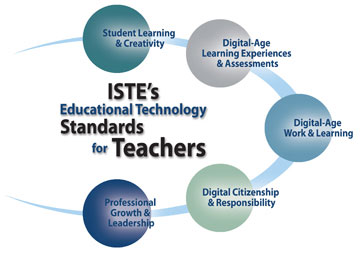
www.iste.org/Content/NavigationMenu/NETS/ForTeachers/2008Standards/NETS_for_Teachers_2008.htm.
Creativity in the Classroom, Innovation in the Workplace
Q: What should be the role of business and industry in the education of today's youth and what strategies can realistically be put in place by business now to foster innovation on the widest possible range of platforms?
www.principalvoices.com/voices/ken-robinson-white-paper.html.
A brochure for young boys to involve them to become better readers.
www.edu.gov.on.ca/eng/document/brochure/meread/meread.pdf
Do's and Don't of Networking:
weblogg-ed.com/2009/dont-dont-dont-vs-do-do-do/
The goal of this Elluminate two hours Webinar is to become a fully functioning community at the end of the three months.
I am also a member of the following NINGs:
otffto.ning.com/group/backintheclassroom
otffto.ning.com/forum/topics/getting-to-know-you
otffto.ning.com/group/medialiteracy
otffto.ning.com/group/photoshop
learningvariations.ning.com/group/computerscienceteachers
learningvariations.ning.com/group/googleappsusers
learningvariations.ning.com/group/teacherlibrarians
learningvariations.ning.com/group/latechnologieetlefrancais
learningvariations.ning.com/group/laptopusers
learningvariations.ning.com/group/professionallearningcommunitiescplcs
learningvariations.ning.com/group/businessteachers
learningvariations.ning.com/group/78dramaforum
learningvariations.ning.com/group/ipodeducation
learningvariations.ning.com/group/elementarytechcommittee
learningvariations.ning.com/group/bookclub
learningvariations.ning.com/group/techedteachers
learningvariations.ning.com/group/computersinedpart3
learningvariations.ning.com/group/smartboardusers
education.ning.com/group/middleschool
smartboardrevolution.ning.com/profiles/members/
http://www.trainingmagnetwork.com/groups/show/90
August 09, 2009:
I attended in Ottawa a Computer Camp OTF three day workshop which provided me with a lot of new knowledge on the software and internet sites available to teachers. I shared with colleagues reflections on teaching practices and the work that was being done in the classroom. I have inserted a link to view the OTF Newsletter as I noticed that my picture had been taken during the OTF Computer Camp. www.otffeo.on.ca/english/pro/pro-newsletter.pdf
Camp. www.otffeo.on.ca/english/pro/pro-newsletter.pdf
For further information on professional learning workshops, I have attached the OTF site. I encourage teachers to attend these very enrichinig workshops.
